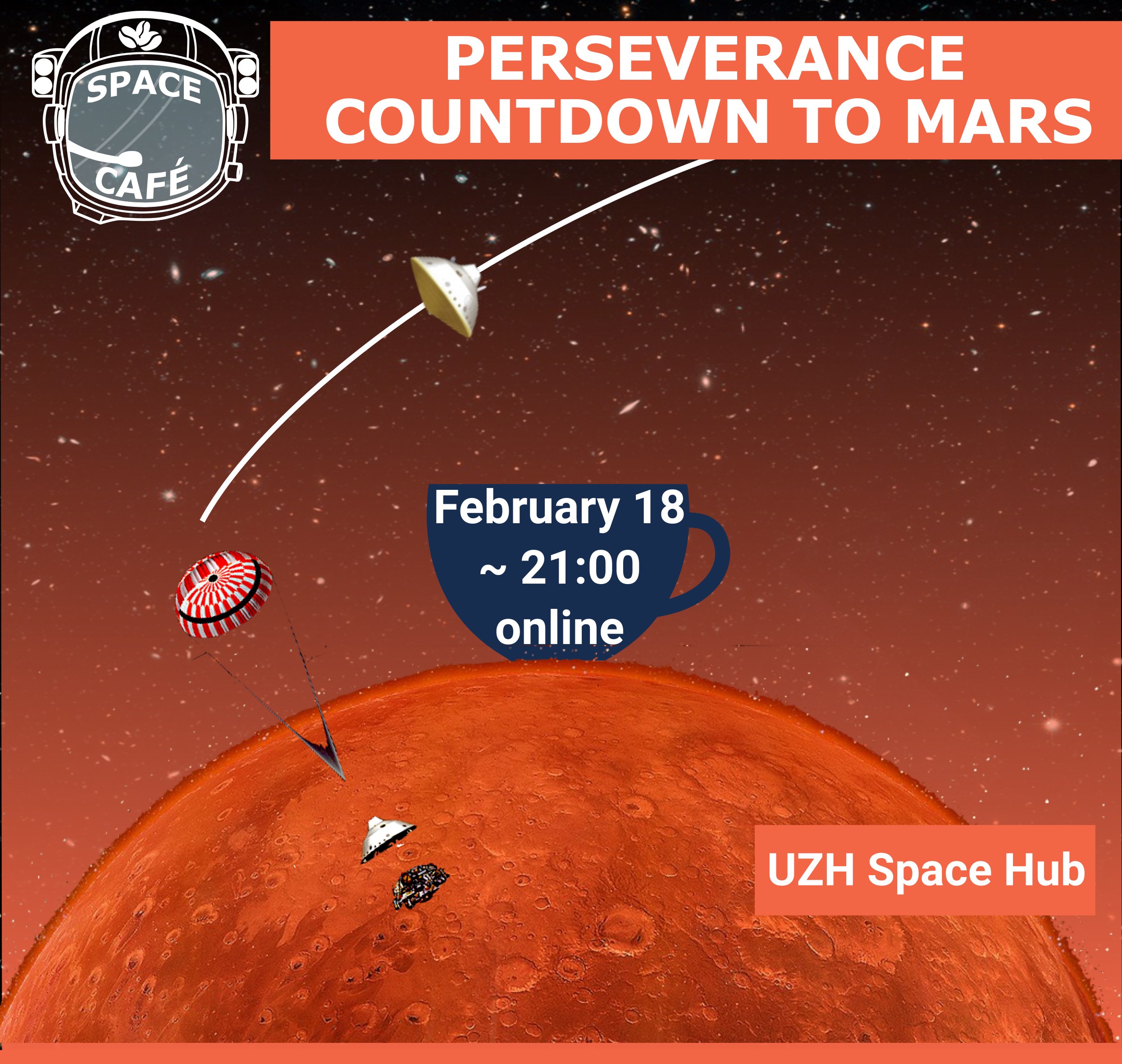Mars Perseverance Rover Landing

More than six months ago, on July 30, 2020, the Mars 2020 mission left Cape Canaveral (Florida). After 480 million kilometers, the mission will be ready to land on the martian surface on February 18, 2021. The event will be live-streamed by NASA starting at 20:15.
Would you like to watch the Mars 2020 landing with us? Register at the end of the page to attend this event online on February 18. Approximate time 21:00.
More about Space Café event series.
Description
Launched on July 30, 2020, at 13:50 CET, the mission Mars 2020 will be ready to land in Jezero crater on February 18, 2021 at 20:15. On board the Perseverance rover and the Ingenuity helicopter drone.
The mission is part of the NASA’s Mars Exploration Program, whose past missions have already shown us that Mars was once very different from the cold, dry planet we see today. Billions of years ago there was probably a wet environment which lasted long enough to potentially support the development of microbial life.
The Perseverance rover carries on seven instruments to better understand the geology of Mars and seek signs of ancient life. The two main goals of the mission are to collect and store rock and soil samples that could be returned to Earth in the future, and to test new technology which can be used in the future human exploration of Mars.
In this Special Space Café, we will learn more about the Mars mission with the help of Giulia Paoli, an aerospace engineer at RUAG, and Adriano Schiaffini, project manager at RUAG. Together, we will watch the landing operations through the NASA live streaming. Entry, Descent and Land operations will be performed autonomously by the spacecraft, since the radio signals from Mars take more than 11 minutes to reach us on Earth. Touch down is expected at approximately 21:55. Would you like to watch the event with us?
Please, notice that the time is still approximate. We will send you the Zoom link with a more precise time on February 18, in the afternoon.
Speakers
Giulia Paoli studied at the Politecnico in Torino where she got her Master degree in aerospace engineering with a thesis on a tool for the thermal analysis of small satellites. The thesis was part of a students' project aimed to develop, build and launch a cubesat within ESA's Fly Your Satellite Project. She is currently working as thermal engineer in the launchers unit at RUAG Space.
Adriano Schiaffini studied Mechanical Engineering at the University of Rome, La Sapienza. In 1998, he joined Thales Alenia Space (former Alenia Spazio), becoming Head of S/C Antennas mechanical verification and space simulation test. In 2008, he joined RUAG Space as Project Manager in mechanisms group, leading, among others, the ExoMars 2016 MSA project.